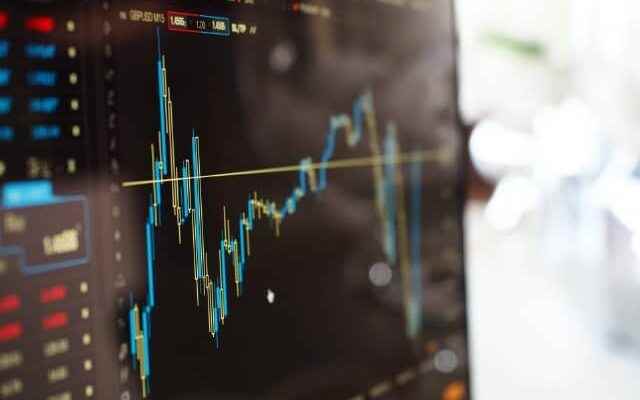(AOF) – As part of the tender procedure launched by ČEZ, its subsidiary Elektrárna Dukovany II and the Czech public authorities, EDF has submitted its offer. This is an initial offer for the supply of engineering, procurement, construction and industrial commissioning services for an EPR1200 reactor for the Dukovany site as well as for the supply of fuel assemblies in the framework of this project.
The French electricity supplier has also made two indicative proposals, the purpose of which is to support the development of a fleet of reactors in the Czech Republic, in particular an additional reactor at Dukovany and two other reactors on the Temelin site.
EDF is thus deploying a strategy aimed at identifying in depth the companies likely to be selected as suppliers within the framework of this project. To date, nearly 200 Czech companies have been identified and some 70 of them have already been pre-qualified.
The group wants to organize dedicated training sessions with a view to familiarizing Czech industrial players with the qualification process for EDF suppliers as well as with the associated codes and standards.
It also plans to expand the scope of the EDF Nuclear Czechia Division in Prague, which is dedicated to the development of EDF’s nuclear activities on the Czech market, in order to coordinate local efforts to achieve successful cooperation. and long-term with ČEZ and with Czech industry.
This first step represents a major milestone for EDF and its partners, it marks its commitment to the development of the Czech nuclear program and its desire to support the development of a fleet of EPR reactors throughout Europe.
AOF – LEARN MORE
Key points
– World leader in low-carbon energy created in 1946 with 38.5 million customers worldwide and 117.3 GW of installed capacity: 60% in nuclear, 18% in hydraulics, 8% in energies renewables, 9% in gas, 3% in fuel oil and 2% in coal;
– Turnover of €84.5 billion and installed capacity of 117.3 GW: 60% in nuclear, 18% in hydraulics, 8% in renewable energies, 9% in gas, 3% in fuel oil and 2% in coal;
– “Cap 30” business model with 3 strategic axes: supporting customers towards carbon neutrality via 10 billion in revenues in services, the rank of 1st world producer of net CO2 electricity and the role of actor of the energy transition;
– Capital 83.69% owned by the State, Jean-Bernard Lévy, CEO of the 18-member board of directors, to be replaced by Luc Rémond;
– Balance sheet cleaned up in April with a net debt (rated A due to the State guarantee) of €42.3 billion, which will be reinforced between 2022 and 2024 by the disposal plan of €3 billion.
Challenges
– 4 strategic plans: electric mobility – 30% market share in the supply of electricity to electric vehicles by 2023 in France, United Kingdom, Italy and Belgium-, storage -10 GW installed worldwide in 2035-, solar power – 30% of the market in France in 2035- and the Excell plan for the French nuclear industry;
– Innovation strategy dedicated to digital transformation, production processes, future electrical systems and the decarbonization of customer uses:
– R&D budget of €661 million with 756 patented innovations,
– EDF Pulse Growth fund and incubator and research partnerships (Sinclair laboratory, 5g living Lab, quantum computing, etc.);
– Environmental strategy included in the purpose of the group:
– carbon neutrality in 2050 and 50% reduction, vs 2017 of emissions in 2030,
– 99% of operating budgets dedicated to decarbonization and energy transition,
– €8.755 billion in “green and sustainable” financing and 72% of credit lines indexed on ESG indicators;
– Launch of the construction program for 6 EPR2s and studies for 8 others;
– Integrated operator, from the design and manufacture of nuclear reactors, through Framatome, 75% owned, alongside Mitsubishi (19.5%) to distribution.
Challenges
– Activity governed by the NOME law (free competition between all market players and resale of a quarter of EDF’s nuclear electricity production to its competitors) and electricity prices administered in France, hence a maintenance cost network little included in the tariffs;
– Impact of the Russia-Ukraine conflict: need to relaunch nuclear electricity production requiring investment in the French fleet and capping of tariffs for individuals;
– Neutralization of the competitive advantage of nuclear power by the obligation to sell electricity to industrialists at the market price;
– Towards a renationalisation of the group but price of the future delisting by the State, ie €12 per share, contested by minority shareholders;
– After a net loss of €5.3 billion in the 1st half, 2022 objective of nuclear production at historic lows, above 280 TWh.
Threat to the European energy system
The leading importer of German gas, Uniper posts 54% of the volumes it buys from Russia. Following the war in Ukraine, the group had to acquire the volumes it lacked on the spot market, the prices of which had exploded. In difficulty, he requested aid from the German state, which raises concerns for all European energy companies. Nevertheless the German RWE and the French Engie reacted by arguing that their situation was very different. RWE stressed that it was less dependent on Russian gas. As for Engie, it benefits from the diversification of its sources of supply, with an increase in the volumes of LNG delivered to France and contracts with Norway and Algeria. The group has also adapted its hedging strategy to strengthen its resilience.
